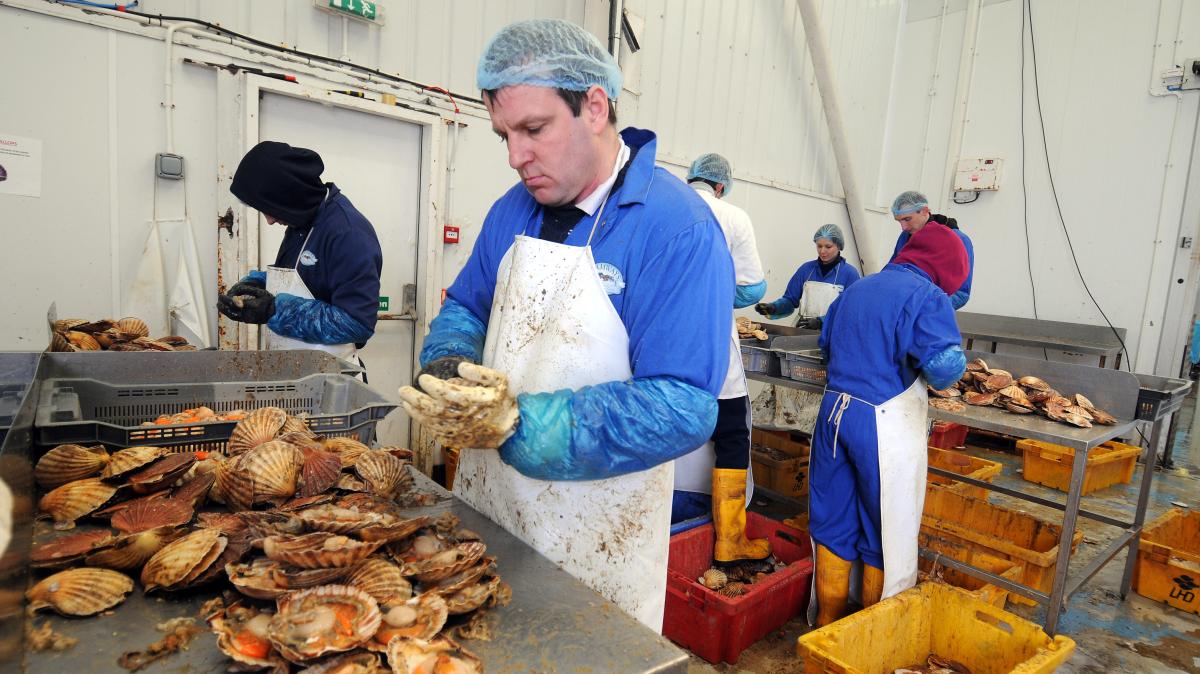British food and flower producers have wasted millions of pounds in preparing for post-Brexit import checks that now may never be introduced, industry leaders have warned.
The sector had been working toward a July 2025 deadline for the introduction of full sanitary and phytosanitary (SPS) controls on agri-food imports from the European Union. However, a sudden shift in government policy, tied to the UK-EU “reset” and new trade talks, means the vast majority of those checks have been delayed.
The Fresh Produce Consortium, which represents suppliers of fruit, vegetables and flowers, said the delays undermined business confidence and left companies in limbo.

The industry has been building infrastructure at its own expense to allow goods to be inspected
GUY BELL/ALAMY LIVE NEWS
“The industry cannot prepare because it doesn’t have adequate information on time and has no confidence in the UK government because they say one thing and do another,” Nigel Jenney, chief executive of the consortium, said.
“We’ve already, as an industry, shown commitment. We have invested huge amounts of money, millions of pounds, in building infrastructure in good faith at our own cost to allow goods to be inspected.”
Just two weeks before the announcement, the Department for Environment, Food & Rural Affairs had told businesses that authorised operator status — a scheme that would allow companies to conduct their own checks — was imminent.
But those efforts may now be futile. “With what the government has just done, the writing is on the wall,” said Mike Parr, chief executive of PML Seafrigo, which manages cold supply chains for perishable imports.
• Juliet Samuel: Keir Starmer’s done no better with the EU than Theresa May
“We spent all that money training our guys in the process, and it’s going to be of no use now,” Parr added. The company invested more than £7 million building a customs facility specifically designed to process post-Brexit import checks, an investment that could now be written off.
“We don’t know when these regulations will come into force,” Jenney said. “We are just starting the southern hemisphere citrus season. These non-EU products and many more may be subject to new regulations, we just don’t know.”
The confusion highlights the broader economic toll of Brexit red tape on UK food and agriculture. Experts at the Centre for Inclusive Trade Policy report that British goods exports to the EU have dropped 16 per cent since Brexit, citing customs hurdles, regulatory divergence, and delays at borders. The fresh produce sector is among the hardest hit.
The apparent abandonment of SPS checks on EU food imports comes as part of a broader shift in trade policy, as ministers look to reduce post-Brexit friction and food inflation by reaching a new agreement with Brussels. A government spokesman said the aim was to “prevent unnecessary border checks, remove red tape for businesses and help tackle the cost of food.”
But the failure to communicate clearly, or early enough, has left a gaping hole in government credibility, industry figures says. Logistics firms have been left guessing whether rules will change, be delayed, or cancelled outright.
The uncertainty raises further questions about future controls on non-EU food imports. Britain imports about half its produce from outside the EU, and under European law, many of these goods require more rigorous checks than the UK currently mandates. Citrus imports, for instance, face no inspection in the UK, but must be inspected under EU rules.
Karen Betts, chief executive of the Food & Drink Federation, the trade body, said: “Trade with the EU is incredibly important to UK food and drink manufacturers. Europe is our single biggest customer, and most of the food and drink we import — from ingredients to finished products — comes from Europe, too.
“However, trade in both directions has become complex and challenging. UK food and drink exports to Europe have fallen by a third since 2019 and businesses continue to face challenges and delays with imports.”
Betts said the government “must continue to work closely with industry on the detail and ensure the UK is able to influence EU decision-making where this impacts British businesses and competitiveness, particularly where the UK aligns with EU rules.”
